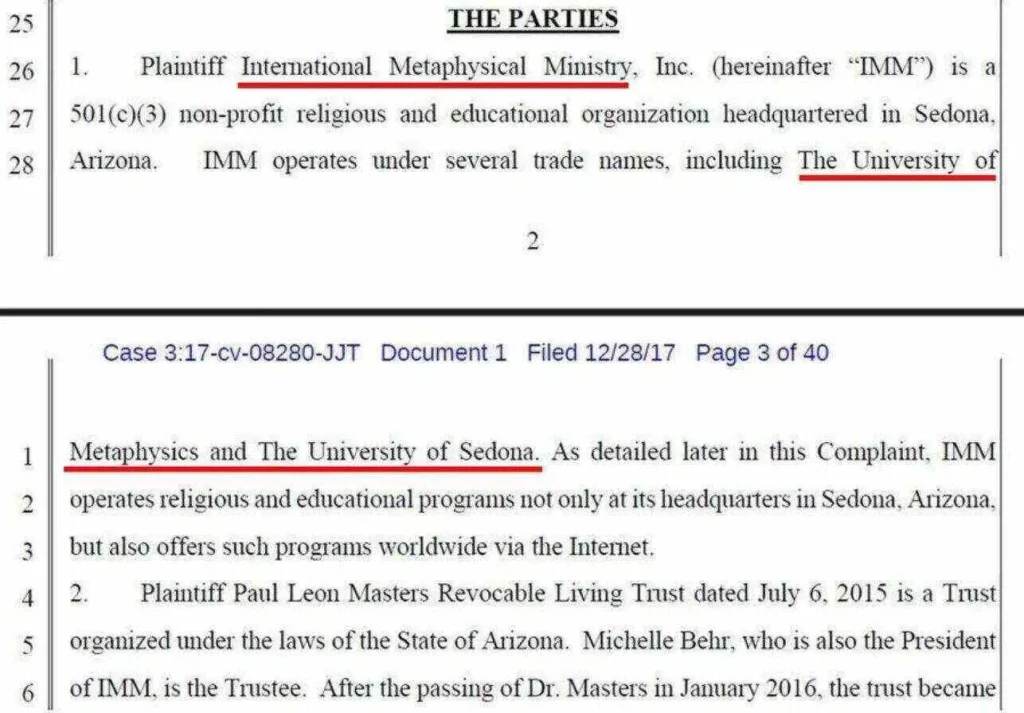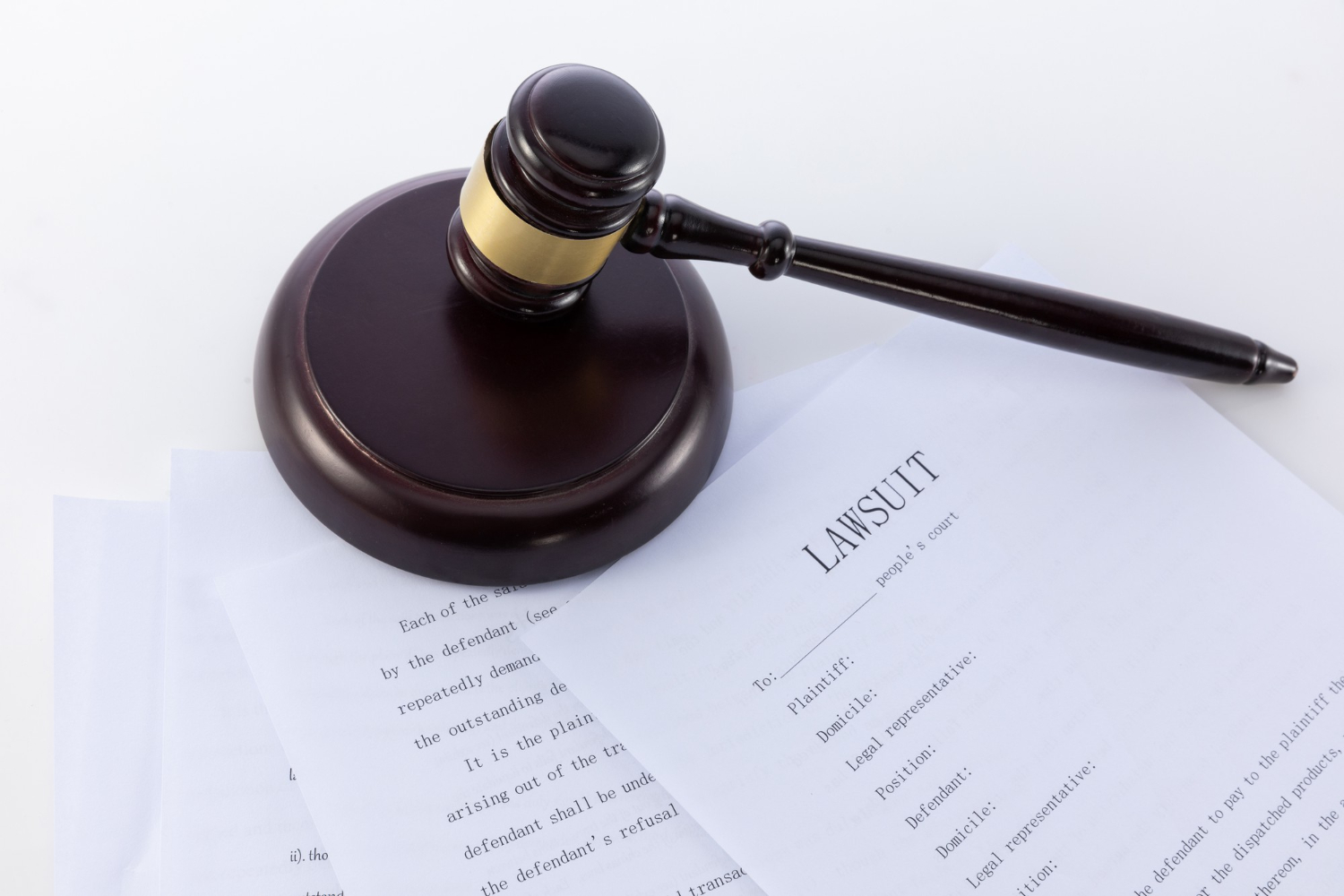On May 12, 2025, the University of Metaphysical Sciences (UMS) announced that the lawsuit(known as university of metaphysical sciences lawsuit) filed against it by a competitor has been officially dismissed. This legal battle, which has been ongoing for several years, has finally come to an end. The dismissal marks a significant moment for UMS, reinforcing its position in the metaphysical education field and ending what many considered a baseless and costly dispute.
Understanding the Lawsuit: What Was It Really About?
The lawsuit stemmed from allegations made by a competitor accusing UMS of running Google ads that improperly used the competitor’s brand name. This was intended to claim that UMS tried to divert prospective students unfairly by capitalizing on the competitor’s reputation through paid advertising.
However, UMS has always maintained that these claims were unfounded. Detailed Google Ad reports submitted as evidence showed that UMS did not run any ads using the competitor’s name. This lawsuit was actually the third legal attempt by the same competitor since 2017, each revolving around similar claims concerning advertising disputes.
This repetitive litigation suggested a pattern of aggressive tactics by the competitor rather than any legitimate concern about UMS’s business practices. The claims never held up in court, and the evidence consistently supported UMS’s innocence.
The Dismissal: What Happened on May 12, 2025?
The lawsuit was dismissed through a mutual agreement between both parties. This means that:
- The competitor withdrew their claims against UMS.
- UMS dropped any counterclaims it had filed.
- The trial, which was scheduled for mid-June 2025, was canceled.
The court’s decision to dismiss the case without any finding of liability against UMS is a clear indication that the accusations lacked merit. This legal outcome protects UMS’s reputation and allows it to focus on its mission without the distraction of ongoing litigation.
Clearing Up Widespread Misinformation
Throughout this legal saga, misinformation has spread widely across the internet, creating confusion among prospective students, current students, and the public. Many false claims and rumors have circulated, some even suggesting the lawsuit questioned UMS’s accreditation, degree validity, or financial practices.

It is important to clarify that none of these claims are true. The lawsuit was narrowly focused on the specific issue of Google advertising and did not involve any aspects of UMS’s academic programs, accreditation, tuition fees, student refunds, or faculty concerns.
UMS holds legitimate accreditation for its religious degree programs, and this accreditation has never been challenged in court. The university’s degrees continue to be valid and respected within the spiritual and metaphysical communities.
Furthermore, students and faculty were never part of the lawsuit in any way. There were no complaints or legal claims made by or against them, and their education credentials remain secure and recognized.
The Impact of a Coordinated Smear Campaign
Aside from the legal battles, UMS has faced an extensive online reputation attack, including:
- Hundreds of fake articles published by unknown sources spreading falsehoods about the lawsuit and the university.
- The use of black hat SEO techniques designed to manipulate search engine results negatively against UMS.
- AI-generated content that spreads misinformation and confuses users and search engines alike.
- Attempts to plant malware and viruses within fake news articles targeting anyone seeking information about UMS.
This orchestrated campaign aims to damage UMS’s reputation far beyond the facts of the lawsuit. The volume and intensity of these attacks indicate a well-funded effort to harm UMS’s standing in the metaphysical education market.
UMS warns readers to be cautious about where they get their information. Official UMS statements and trusted review platforms are the safest sources for accurate information.
What Is Next for the University of Metaphysical Sciences?
With the lawsuit behind them, UMS is turning its attention to fighting back against the ongoing misinformation and online defamation. To do this, the university is pursuing a John Doe petition, a legal procedure designed to identify anonymous individuals or organizations responsible for posting defamatory content online.
This petition will help UMS obtain court orders compelling websites, hosting services, and search engines like Google to:
- Remove hundreds of fake articles.
- Eliminate thousands of derogatory and spammed search terms.
- Correct false information being spread through AI-generated content, especially by Google’s AI system called Gemini.
UMS has already gathered significant evidence about the sources of these attacks but needs legal tools like subpoenas to uncover the full extent of who is behind them. This process is critical to stopping the continuing online attacks and protecting UMS’s reputation.
Why This Matters to Students and the Metaphysical Education Community
For current students, alumni, and prospective learners, the dismissal of this lawsuit is a vital reassurance. It means that UMS remains a credible and trustworthy institution committed to providing authentic education in metaphysical and spiritual studies.
UMS offers accredited religious degrees, including Bachelor’s, Master’s, and Doctorate (PhD) programs, all designed to provide meaningful coursework that prepares students for careers and personal growth in spiritual fields. The university is known for its compassionate approach, affordable tuition options, and transparent operations.
Despite the attacks, the student community continues to express high satisfaction with their education. Reviews on platforms like Trustpilot and Metaphysics University Reviews highlight the positive experiences students have had.
This legal resolution also protects the integrity of spiritual education within the metaphysical degree market, which can sometimes be vulnerable to misinformation and diploma mill accusations. UMS stands out as one of the only institutions in this space offering legitimate and recognized programs.
Financial Impact and Community Support
Legal battles, especially lengthy ones like this, come at a high financial cost. UMS has taken on loans to cover legal expenses and now faces the challenge of repaying these debts.
The university appreciates any support from its community, students, and well-wishers who believe in its mission. Donations, sharing accurate information, and spreading awareness about the truth behind the lawsuit help UMS rebuild and continue its important work.
UMS remains committed to offering affordable education, with payment plans starting as low as $25 per month, making metaphysical education accessible to many.
How to Protect Yourself from Fake News and Online Attacks
If you are researching UMS or this lawsuit, here are some tips to avoid falling victim to misinformation:
- Use official sources: Visit UMS’s official website and trusted news outlets for the latest and most accurate updates.
- Check multiple sources: Cross-reference information to identify discrepancies or biased content.
- Be cautious of sensational headlines: Fake articles often use dramatic language to attract clicks but lack factual substance.
- Avoid clicking on suspicious links: Many fake articles contain viruses or malware that can harm your device.
- Use trusted review platforms: Read real student and alumni reviews on sites known for honest feedback.
By staying vigilant, you can protect yourself from the spread of false information.
The Bigger Picture: A Call for Change in Online Reputation Management
The tactics used against UMS highlight a growing problem in how online platforms handle misinformation and defamation. From fake news to malicious SEO campaigns and AI-generated hallucinations, institutions today face complex challenges in maintaining their reputations.
UMS’s situation may serve as a case study for future laws and regulations aimed at better protecting organizations from these types of attacks. Transparency, accountability, and technological improvements in search engines and AI systems will be essential to combat misinformation moving forward.
Final Thoughts
The dismissal of the University of Metaphysical Sciences lawsuit ends a challenging chapter but opens a new one focused on truth and transparency. UMS has demonstrated resilience and commitment to providing quality metaphysical education despite facing unfair attacks.
As UMS moves forward, it invites students, supporters, and the metaphysical community to join in supporting an institution dedicated to spiritual growth, education, and integrity.
For those seeking accurate and up-to-date information, UMS encourages visiting its official channels and verified sources to stay informed.
Frequently Asked Questions (FAQs)
Q1: Was UMS found guilty in the lawsuit?
No. The lawsuit was dismissed by mutual agreement, and no liability was found against UMS.
Q2: Did the lawsuit involve student complaints or faculty issues?
No. Neither students nor faculty were involved or targeted in the legal claims.
Q3: Is the lawsuit still ongoing?
No. The case officially ended on May 12, 2025, and the scheduled trial was canceled.
Q4: Was the lawsuit about the validity of UMS degrees or accreditation?
No. Accreditation and degree validity were never questioned in the lawsuit.
Q5: What should I do if I see negative articles about UMS online?
Verify information through official UMS communications and trusted review sites. Be cautious of fake news and misleading articles.
Q6: How is UMS addressing the online smear campaign?
UMS is filing legal petitions and working with search engines to remove defamatory content and identify those responsible.
Crypto analyst & strategist. 10+ yrs in blockchain. Ex-top 5 exchange lead. DeFi & Web3 specialist. Cited in CoinDesk, Bloomberg. ETH Zurich grad.








https://fintechzoom.be/7-stages-of-love/